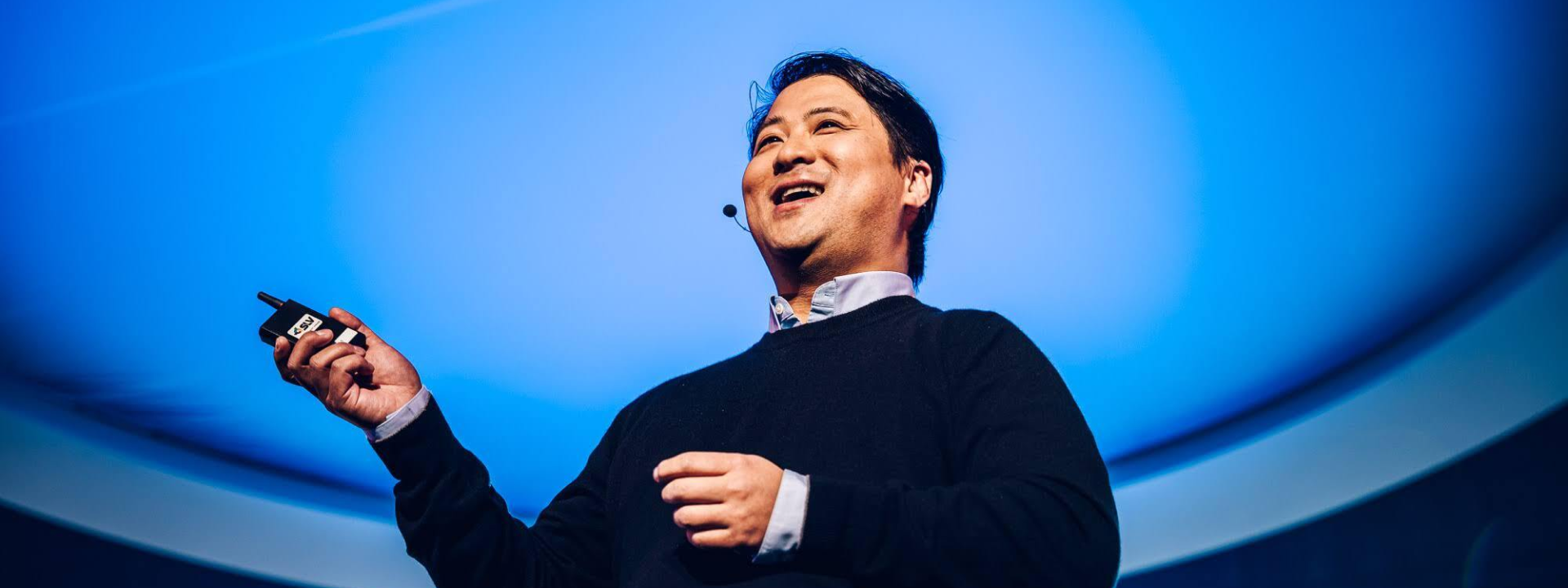
Beyond the unicorn status: Deliverect’s vision with CEO Zhong Xu
Deliverect is a software platform that connects delivery channels like Deliveroo, Uber Eats, and DoorDash with point-of-sale (POS) systems. It has rapidly risen to unicorn status, becoming one of Belgium’s major success stories. We had the pleasure of a video call with CEO Zhong Xu to learn about his journey, the challenges of scaling globally, and what drives his company’s future investments.
As a teenager, you made websites for Chinese restaurants, and your family has a long history in the industry. Do you feel your journey in this industry was inevitable, or were you drawn to explore other fields?
I dabbled in various industries like television, broadcasting, and web design, but I always found my way back to food and beverage. It felt natural to focus on something I understood, something I was passionate about. I think many new entrepreneurs struggle to find an idea because they look outside their areas of knowledge. In reality, the idea is only a small part of building a business. Stick to what you know, become an expert, and passion will follow.
I guess that worked for you: congratulations on Deliverect becoming Belgium’s fourth unicorn in 2022! In a past interview, you mentioned that reaching unicorn status wasn’t really your main goal. What’s your bigger vision?
While unicorn status brings press attention, in reality, it’s just the start of more work. When you’re raising funds, you don’t just get the money: you need to grow, invest, and return the value 3, 5, even 10 times. Focusing too much on titles or attention doesn’t help because challenges remain. Of course, we’re proud, and we wear our unicorn status like a badge of honor—but the true goal is to keep pushing boundaries and solving new problems.

Just like you did with the recent launch of a new vertical, Deliverect Retail. Would you
consider this a major milestone for the company?
Absolutely. We’ve grown significantly in the restaurant sector, initially focusing on online orders and later integrating in-store orders as restaurants reopened post-pandemic. But we’re always thinking about our Total Addressable Market (TAM) and how we can expand.
This is a lesson for other scale-ups too: while early startups can survive on one product, bigger companies need to diversify their offerings before it’s too late. Just look at Microsoft, Google, or Apple—they’ve all branched out beyond their core business.
Are you a foodie yourself?
Oh, definitely. I don’t cook much, but I used to dream of visiting all our clients annually to taste their menus and build relationships. Unfortunately, with so many customers now, it’s impossible to fit them all into one year, so I had to give up on that idea…
That’s a pity! You co-founded Deliverect with Jan Hollez. What qualities should people look for in a “partner in crime”?
Find someone who complements you—whether in skillset, character, or mindset. It’s about achieving a balance, like yin and yang. If you’re intuitive, find someone more process-driven. If you’re product-focused, find someone with go-to-market expertise. Sure, being similar can amplify your strengths—but your weaknesses as well.
Speaking of yin and yang: you’ve worked in both Europe and the US. How do you see entrepreneurship and business culture differing between the two regions?
Europe tends to think smaller. We’re often afraid of failure, and when you share bold ideas here, people tell you to “just act normal”. In the US, those same ideas are celebrated. You don’t need to be overly ambitious, but if you think small, you’ll attract small investments. Big ideas attract big funding and opportunities.

You recently posted on LinkedIn “If you’re going to invest in something, let it be your organization’s culture.” Why is it so important?
Culture is everything. No matter which of our 14 offices you visit—whether it’s in Sydney, Mexico City, or Toronto—you’ll feel the same vibe, experience the same way of working, and receive the same welcome. We hold all-hands meetings every Friday at 5 PM, and at the end of each month, we celebrate our successes and reflect on our failures. If we hit our targets, we go out for a fancy meal—but even if we don’t, we’ll still enjoy takeaway together.
When scaling, new employees won’t automatically know what your company stands for, so engineering, documenting and actively teaching your culture is critical. It’s not enough to put up a few posters; you need to educate both newer team members and those with more corporate experience.
How do you decide where to focus your innovation efforts?
We are very customer-centric. Every six months, we hold review meetings with our larger customers and actively listen to their feedback. We work hard to identify their key needs and develop MVPs. Every new innovation feels like a mini-startup—it might fail fast or grow quickly, but iteration and customer feedback drive our process.
How would you summarize SuperNova and how does it stand out?
SuperNova is a very energetic gathering of like-minded people, creatives, entrepreneurs, people that want to know how the startup ecosystem works. It’s a high-energy, open environment where seasoned entrepreneurs love to pay it forward and offer advice to newer ones. For early-stage startups, it’s a great place to learn about funding, product development, and networking, which is key to scaling a business. Networking helps you find the right team members, customers, and investors to join you on your journey.
I’d definitely recommend SuperNova!